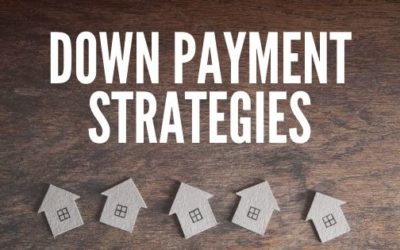Overcome the down-payment challenge with these clever options
For many first time home buyers, amassing the standard 20% down payment can be a real challenge. Instead of trying to accumulate the total amount, consider combining your total down payment with some of these financial strategies. The result will be that you are in your dream home faster, and you will not jeopardize your long-term financial well being.
Many down payment options sidestep the standard requirement of 20% down. These options are especially lucrative for first time home buyers because lenders understand how difficult it is to save.
You might consider exploring FHA loans, USDA loans, or VA loans to come up with some clever financial maneuvering. Conventional loans that are not financially backed by the US government offer very low down payments – sometimes as low as 3%! This might be the ideal solution if you are unable to stockpile funds.
In addition to these loan options, several programs at the state and local levels offer down payment assistance. These programs are often implemented by government agencies, foundations, or nonprofit organizations. Support usually comes in the form of grants or forgivable loans.
Contrary to what many people think, these programs are not only for low-income areas. Instead, they are often aligned by property and program, based on the location and the price of a home.
If you are unable to find any assistance programs, you might consider asking for down payment gifts and loans from your family. These types of gifts are acceptable to lenders – though there is more to it than simply dropping a check at the bank. Down payment gifts require a lot of documentation to satisfy a lender’s financial requirements. So make sure you are clear on all the paperwork you need before you go this route.
An emerging tech-based option for down payment assistance is to crowdfund the amount needed. There are sites that allow you to build an online profile and raise money through crowdfunding sources. However, these sites often come with fees, so be sure you know about any hidden costs ahead of time.
Finally, if you are in a position in your career to take a retirement account, withdraw, it might be a useful way to bridge the gap between renting and homeownership. Withdraws will come with tax penalties, so be mindful of the amount you will need to pay during the next tax cycle. In addition, early withdrawal can make it hard to catch up on retirement savings, especially if you are close to an age where you are ready to stop working.



